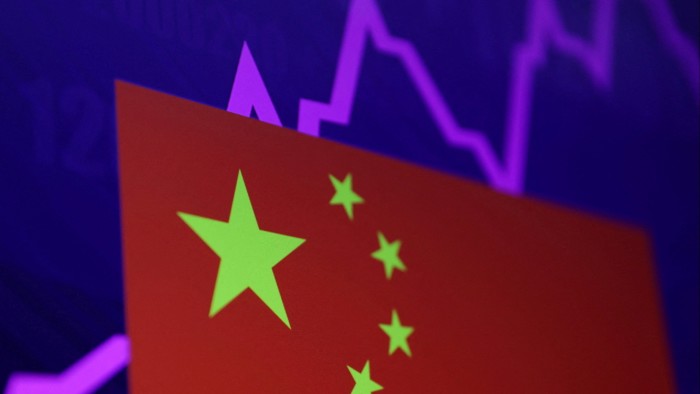Unlock the Editor’s Digest for free
Roula Khalaf, Editor of the FT, selects her favourite stories in this weekly newsletter.
China’s equities and currency extended losses on Monday after a rocky start to the year, as weak economic data and geopolitical uncertainty ahead of Donald Trump’s inauguration hit investor sentiment in Asia’s largest economy.
Mainland China’s benchmark CSI 300 index edged down 0.2 per cent on Monday and has declined 4.3 per cent in the first three trading days of the year, marking the worst start to 2025 among major Asian indices.
Small-cap Chinese stocks on the CSI 2000 have fallen 6.3 per cent since the start of the year after a disappointing 2024. Hong Kong’s Hang Seng index shed 0.4 per cent on Monday and is down 1.9 per cent so far this year.
China’s currency slid to a 15-month low of Rmb7.33 to the dollar on Monday, despite the People’s Bank of China holding steady its daily trading band for onshore renminbi.
Weak Chinese economic data, a two-year high for the dollar index and Trump’s impending return all contributed to outflow pressure on Chinese stocks, said Kevin Liu, strategist with CICC.
Monday’s choppy trading came despite the Shanghai and Shenzhen stock exchanges announcing late on Sunday evening that they held a weekend meeting with foreign investors “to solicit opinions and suggestions” on recent moves in the Chinese equities market.
Exchange regulators assured investors that China’s economy was supported by “solid fundamentals and resilience”.
China’s central bank on Monday kept the daily fixing rate — the midpoint around which the renminbi is allowed to trade 2 per cent in either direction against the dollar — at Rmb7.19, in spite of selling pressure on the currency.
In another sign of weak sentiment, investors continued to purchase long-dated sovereign debt, as concerns over weak domestic consumption bolstered bets that the PBoC would further ease monetary policy.
The yield on 10-year Chinese government bonds fell 0.015 percentage points to 1.61 per cent on Monday, after hitting its all-time low below 1.6 per cent last Thursday. Bond yields move inversely to prices.
Last week, China’s official manufacturing purchasing managers’ index came in at 50.1, below estimates. The Caixin manufacturing PMI, which focuses on smaller privately owned businesses, also fell short of forecasts with a reading of 50.5. A reading above 50 indicates factory activity grew compared with the previous month.
Read the full article here

